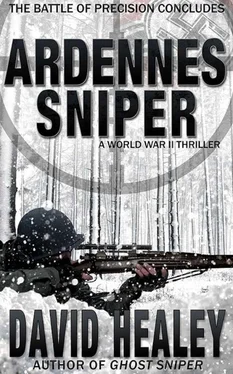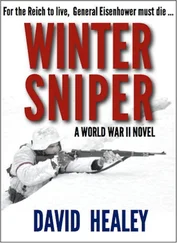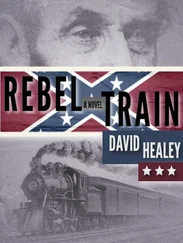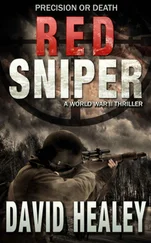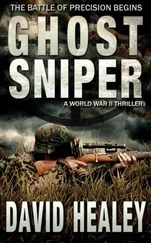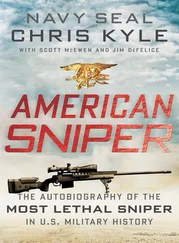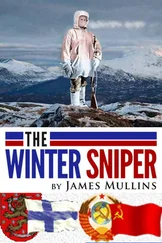The officer looked at him in shock, his mouth hanging open.
Friel holstered his pistol. “We are walking out of here just before dawn.” He looked at a hauptmann. “Baumann, at that time, you take a handful of men and set our panzers on fire. Another small detachment will man the machine guns to provide cover while you do this and distract the enemy. Then you must all catch up to us. No one gets left behind.”
“But Herr Obersturmbannführer, your orders—”
“From headquarters, the situation is not always as clear as it is in the field. It is twelve miles through the woods to Germany. The trees will give us some cover from the Allied planes. It is true that we will have to destroy our tanks, but we will return with eight hundred SS troops. Not old men and boys, but eight hundred good SS soldiers to defend the Fatherland from the Allies. That fool at headquarters will be glad to see us. Mark my words, he will forget that he gave any order otherwise. In any case, I accept full responsibility. If there are repercussions, you were simply following my orders.”
Von Stenger thought it took courage to use common sense. There was so little of that here in the waning days of the war. With more officers like Friel, he thought, Germany might have won the war.
The tank officer who had questioned Friel’s decision saluted. And then he smiled. “Herr Obersturmbannführer, we shall do as you command!”
Friel dismissed the officers, but Von Stenger seemed to be the only one who didn’t need to rush off somewhere.
A bottle of wine and some glasses stood on a table. Von Stenger poured himself a glass and cut a slice of bread from the stale hunk that someone had found. He added a slice or two from a sausage. It tasted delicious — he had not eaten all day.
One of Friel’s staff was already busy burning papers in the fireplace in preparation for the retreat — various orders and maps, from the looks of it.
Suddenly, a feeling of relief washed over him. He had killed the hillbilly sniper. Who cared if they were about to retreat! He lifted the glass. Cheers to me, he thought. He wondered what hillbillies drank. Beer? Moonshine? He took a big drink of wine. The wine tasted a bit flat. Upon reflection, he decided that it was not the wine, but him — deep down in the dregs of his soul, he felt disappointed. As if he had been cheated somehow. Killing the American had just been too easy.
Friel came in and Von Stenger poured him a glass as well.
Friel raised the glass. “Just think of it, Kurt. By tomorrow at this time we shall be back in Germany — or in hell.”
They drank to that.
As darkness fell, Cole thought about his next move. In many ways, that depended on what the Germans were going to do. He wasn’t a general who had to think about how to position an entire division, or worry about how to capture a German column to keep Ike happy. He only had himself to order around, and he was focused on just one German: Von Stenger.
The thought of the Ghost Sniper gnawed at him. Even if Von Stenger believed that Cole was dead, it didn’t mean that Cole was through with the German. This was like some blood feud between mountain families. It ended when the last drop of the other man’s blood was spilled.
So what were Das Gespenst and the Germans planning? They had their backs to the river and the roads out of La Gleize were blocked by American artillery. They would not be able to fight their way out. It didn’t take a brilliant military strategist to know that the Germans couldn’t hold out much longer. They had to be low on food, fuel, medical supplies, and maybe even ammunition. For Kampfgruppe Friel, it was only a matter of time.
He doubted the Germans would surrender. Killing the Americans at Malmedy meant that they were all war criminals, so surrendering was the same as putting their necks in a noose. At the same time, fighting to the last man sounded good in the movies, but it wasn’t really how battles ended.
No, Cole wasn’t a general, but he saw the possibility exactly because of that — the Germans were planning to escape.
Observing them through the scope of his rifle, he had a closer view of La Gleize than most of the other Americans. He could see that they were up to something.
While most of the Germans were engaged in hurling shells at the American lines, as dusk fell a handful were rounding up Jerry cans of gasoline. The clincher was when he saw them knocking together several sets of travois. You didn’t do that unless you planned on hauling wounded or possibly supplies on foot — sure as hell not with a tank.
It dawned on Cole that the Germans were planning to abandon La Gleize.
But how did they plan to escape?
At first glance, the Germans seemed to be corralled. But the Americans had focused on blocking the roads out of La Gleize. To the northwest of town the forest marched down out of the Ardennes toward La Gleize. The Americans hadn’t bothered to guard the forest because the trees were too thick for tanks and trucks to pass through. It was like a fence. So why bother protecting it when the American forces were already spread so thin?
On foot, at night, the Germans could pass among the trees and right through the American lines.
Acting on his hunch, Cole slipped into the woods to explore them. He took with him a map borrowed from Lieutenant Mulholland. He did not have to go far before he found a forgotten sunken road, more of a cart track really, worn down below the surface of the forest floor from centuries of use. The sunken road was too insignificant to appear on the map. Not so much as a footprint showed in the thin snow covering the road bed. It was much too narrow for tanks, but the road would take the Germans right through the woods to what the map showed was a clearing on the other side.
Leaving the woods, Cole debated about whether or not to share his hunch with anyone. Who would believe him, anyway? But if the Germans did slip away, after what they had done to those poor bastards at Malmedy, it just wouldn’t be right.
He went to tell Lieutenant Mulholland.
• • •
Half an hour later, Cole and Mulholland were waiting to see Colonel Akers, who was commanding the assault on La Gleize.
“Cole, I hope you’re sure about this,” Mulholland said.
“Sure I am,” Cole said. “If we get some troops on the other side of those woods, we can bag the Germans neat as a rabbit in a sack.”
Mulholland gave him a look. “When we get to see the colonel, you better let me do the talking.”
They watched other officers and couriers hurrying in and out of the house that the colonel had taken over on a hillside overlooking La Gleize. Within a stone’s throw was the main road into town. Within sight at one end of the road was the town itself. To the west was Germany. The road was the obvious route of retreat through the rugged Ardennes territory. It was not heavily defended by Sherman tanks, Wolverine tank destroyers, and machine gun emplacements.
Cole and Mulholland had not even been invited inside the house. They stood outside in the cold, shivering.
“You reckon he forgot we were out here?” Cole asked.
“Maybe.”
Finally, an officer came out and beckoned impatiently to them. “You still here? The colonel will see you now.”
They found Colonel Akers pacing in front of a stone fireplace, chewing on an unlit cigar, with a mug of coffee in hand. Well over six feet tall, in his late forties, he looked like a tough son of a bitch — and exactly the kind of officer who was sure of his opinions.
He didn’t mince words. He also didn’t seem to remember Mulholland from the briefing before the initial attack on La Gleize. Looking at Mulholland, all he said was: “What?”
Читать дальше
